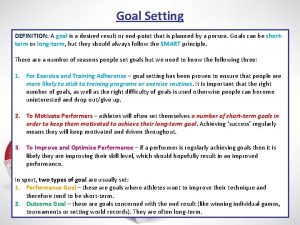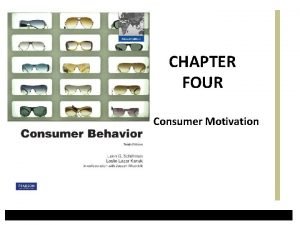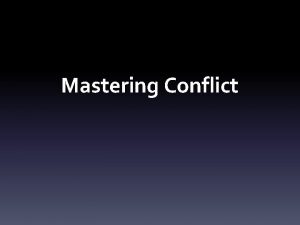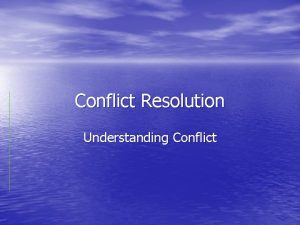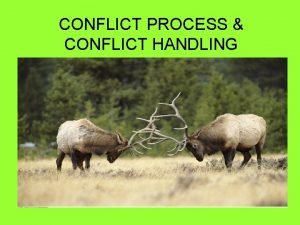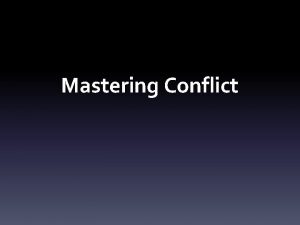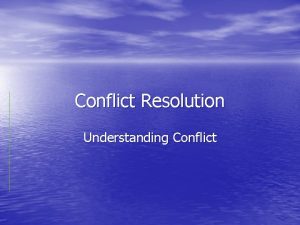Goals in Conflict n Desired outcomes of a







- Slides: 7

Goals in Conflict n Desired outcomes of a conflict n Change through conflict interaction n Goal clarity necessary for effective conflict management n People usually have multiple goals n Goals may conflict causing confusion and internal tension Tricia S. Jones, Temple University, copyright protect, March 2006

Advantages of Goal Clarity n Solutions go unrecognized if you do not know what you want n Batnas go unrecognized if you do not know what you want n Only clear goals can be shared n Clear goals can be altered more easily than unclear goals n Clear goals are achieved more often than unclear goals Tricia S. Jones, Temple University, copyright protect, March 2006

Prospective Goals n Goals that are made explicit, either publicly or privately, before the conflict interaction takes place – Serve as a direction, guidelines – Not written in stone, changeable – Mager and Pipe’s suggestions for establishing prospective goals § Write them down § Write down ways you would know the goal has been achieved § Prioritize Tricia S. Jones, Temple University, copyright protect, March 2006

Transactive Goals n These are goals that develop during the conflict interaction – Result from exchange of information in the conflict interaction – May be extensions of prospective goals or completely new – Can overshadow prospective goals, which may be strategically disadvantageous Tricia S. Jones, Temple University, copyright protect, March 2006

Retrospective Goals n Goals that develop after the conflict interaction – Are often explanatory – Are often justifying what has been done, facesaving – May be relatively inaccurate in terms of what actually happened in the interaction – Have most impact on coloring future interactions Tricia S. Jones, Temple University, copyright protect, March 2006

Content v. Relationship Goals Content goals concern substantive issues n Relationship goals concern relationship definition, rules, direction n – – – All conflicts involve both, but with different emphasis Both types influence each other Repetitive conflicts are often relational issues masked as content issues – High power disputants often focus on content, low power disputants focus on relationship Tricia S. Jones, Temple University, copyright protect, March 2006

Guidelines for Goal Setting n The more specific the better n Orient toward future, not present or past n Revise out-of-date goals n Develop mutual goals if possible n Seek input on realistic, attainable nature of goals from trusted information or outsiders Tricia S. Jones, Temple University, copyright protect, March 2006


